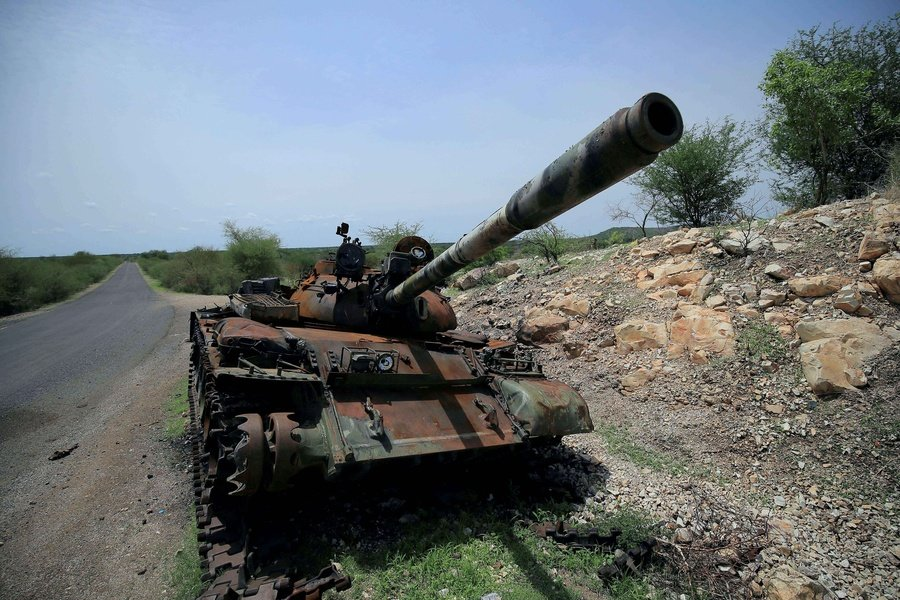Nine months after fighting erupted in the northern region of Tigray, Ethiopia is going from bad to worse. The conflict has expanded geographically to Afar and Amhara, regions outside of Tigray’s borders, drawing in new combatants as the federal government mobilizes ethnic militia forces from around the country and calls upon “all capable Ethiopians of age” to take up arms and fight. At the same time, the Oromo Liberation Army claims to have struck a deal to coordinate with the Tigrayan forces in fighting against the central government. All of the trends are moving in the wrong direction, and all of the antagonists are making decisions that broaden conflict as they double down on the pursuit of military solutions.
Meanwhile, increasingly urgent international calls for de-escalation, political dialogue, and prioritizing humanitarian access continue to fall on deaf ears. Highly skilled diplomats are unable to penetrate the calculus of decision-makers in Addis, who write off the United States and others as longstanding Tigrayan People’s Liberation Front (TPLF) partisans, neocolonial meddlers who lack respect for Ethiopian resolve and sovereignty, or both. Prime Minister Abiy’s latest statement warns darkly of members of the international community who seek to “resuscitate” the TPLF “for their own agenda” and of “the machinations of foreign hands.” Breaking through the preconceptions and ready-made dismissals is now the central challenge for those working to prevent Ethiopia’s collapse into intractable civil conflict.
Ironically, many of those now accused of conspiring to restore the TPLF’s control of the federal government are the same individuals and governments that greeted Prime Minister Abiy’s rise with unbridled enthusiasm, precisely because he seemed to represent a change in direction from the untenable and abusive authoritarian practices that came to characterize the era of TPLF dominance. It is fair to criticize the close relationship that the United States and other states pursued with a repressive Ethiopia governed by Meles Zenawi, but undeniable that those same governments signaled their wholehearted enthusiasm for a change in direction during Prime Minister Abiy’s honeymoon phase. Observers and officials in the United States and Europe hoped that by opening political space and strengthening institutions, he might be able to marry Ethiopia’s development gains to a more inclusive, more accountable, and ultimately stronger and more stable Ethiopia, that in turn could be a constructive regional and global leader. Those same observers are sounding the alarm not just because of the current conflict’s toll on civilians, but because they see Ethiopia consuming itself and the promise of its future with violence. It is neither nostalgia for the Meles years nor fear of Ethiopian strength that informs the diplomats imploring the Ethiopian government and the Tigrayan leadership to stop this madness. It is an acute sense of opportunity lost, and of the appalling costs to Ethiopians and the region should the state degenerate into chaos.

